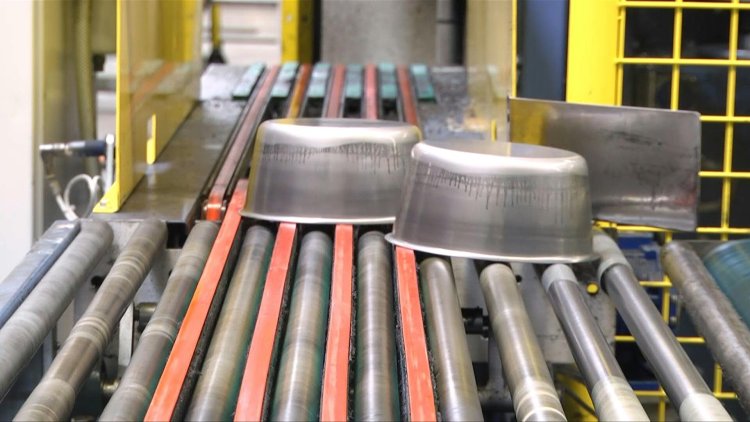Stainless Steel Cookware Makes Comeback

Stainless steel cookware is making a comeback amid concerns over "forever chemicals" (PFAS) found in non-stick coatings. At Fesches-le-Châtel in France's Doubs region, high-end cookware maker Cristel has seen demand for its stainless steel pots and pans "explode" since France passed a law in April restricting PFAS use due to health and environmental risks, says deputy CEO Damien Dodane.
The law, headed to the Senate, bans PFAS in cosmetics, skis, and clothing from 2026, except safety gear. Amid a Tefal campaign, the law spared non-stick cookware coatings. But the debate stoked "real concern" in the cooking market, notes Dodane. While stainless and non-stick were equal sellers for Cristel, stainless now makes up 70% of sales.
On Cristel's production line, pots await welding of signature removable handles - an idea that revived the firm when an accountant's husband proposed it in 1983. Cristel had roots dating to 1826 but struggled after workers bought the failing Japy factory, a major 19th century firm that made WWI helmets.
The accountant, Bernadette Dodane, concluded the coop had no future after three bankruptcies in eight years. Her husband Paul, a draftsman, designed the removable handle to move pots elegantly from stove to table. After a prototype's success, workers asked the Dodanes to take over in 1987, mortgaging their home.
Today, Cristel touts stainless as the "only alternative to forever chemicals," with 200 annual cooking demos. For non-stick lines, it offers re-coating at 30% of the original price, guaranteeing products for life. As PFAS concerns rise, the stainless steel revival benefits firms like two-century-old Cristel.















